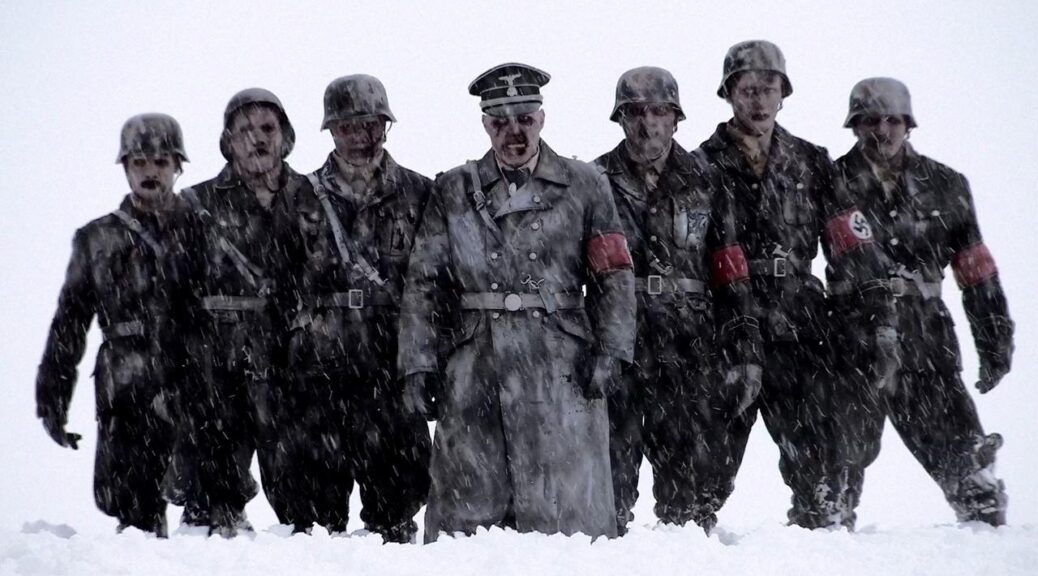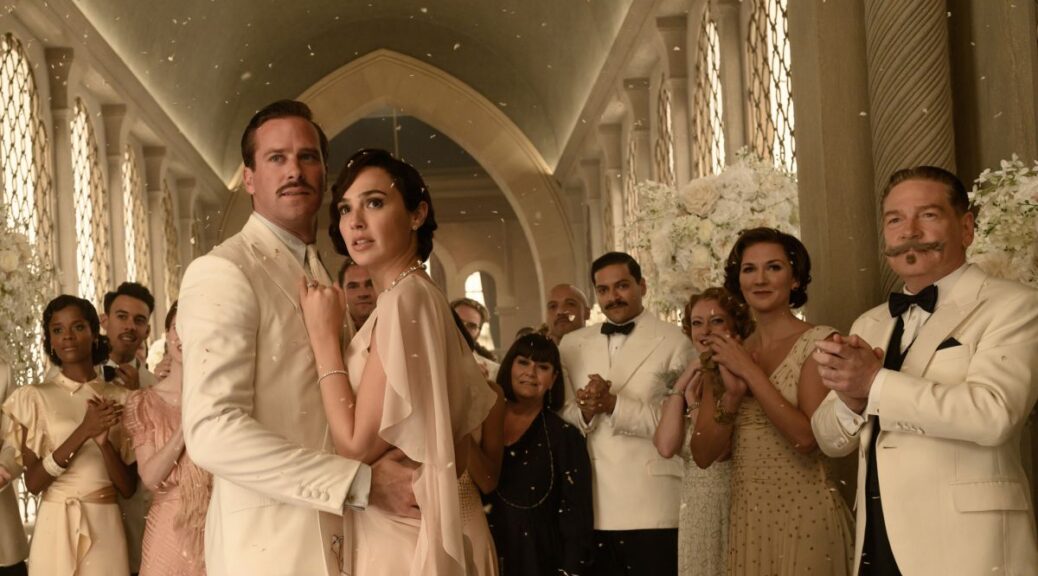by Hope Madden and George Wolf
Not a ton of surprises in this year’s Oscar nominations. Maybe we’re lucky there were so many good films to choose from, given the brief nominating window this year. Because of Covid, last year’s contenders had 14 months to find a release. To make up for that and get us back on track, the eligibility window for 2021 was just 10 months.
Still, the academy decided to go ahead and abandon their unpopular “there could be 10 best picture nominations, but probably not) to the more easily understandable “yep, 10.” And yet, still no blockbusters made the list.
But the really important question is this: what do we think?
Best Actress in a Supporting Role
Nominees:
- Jessie Buckley, The Lost Daughter
- Ariana DeBose, West Side Story
- Judi Dench, Belfast
- Kirsten Dunst, The Power of the Dog
- Aunjanue Ellis, King Richard
Surprises and Snubs: The biggest surprise is Caitriona Balfe, who was the front runner (and reasonably so) to get recognized in this category for Belfast. We’d have swapped Balfe in and left Dench off. But for us, Ruth Negga’s turn in Passing is just as big an oversight and as much as we loved Buckley in The Lost Daughter, we’d have given her spot to Negga.
Best Actor in a Supporting Role
Nominees:
- Ciarán Hinds, Belfast
- Troy Kotsur, CODA
- Jesse Plemons, The Power of the Dog
- J.K. Simmons, Being the Ricardos
- Kodi Smit-McPhee, The Power of the Dog
Surprises and Snubs: While this is a solid list, we’d leave out Simmons and Hinds in favor of Mike Faist in West Side Story, Ben Affleck in The Last Duel or Colman Domingo in Zola.
Original Score
Nominees:
- Don’t Look Up
- Dune
- Encanto
- Parallel Mothers
- The Power of the Dog
Surprises and Snubs: For us, this is the year Jonny Greenwood should have been nominated twice (maybe three times!). Great to see his deserving nod for The Power of the Dog, but we’d have bumped him in there for Spencer as well, perhaps in leu of Nicholas Britell’s work in Don’t Look Up.
Best Adapted Screenplay
Nominees:
- CODA
- Drive My Car
- Dune
- The Lost Daughter
- The Power of the Dog
Surprises and Snubs: We were surprised not to see Tony Kushner’s update of West Side Story get noticed, and we were sad that Rebecca Hall’s insightful reimagining of Ella Larson’s novel Passing was left off the list. Joel Coen’s streamlined The Tragedy of Macbeth also deserved a spot. We would have given them the spots filled by Dune and CODA and maybe The Lost Daughter.
Best Original Screenplay
Nominees:
- Belfast
- Don’t Look Up
- King Richard
- Licorice Pizza
- The Worst Person in the World
Surprises and Snubs: We were surprised—delighted, really—to see The Worst Person in the World and Don’t Look Up recognized. We would have left King Richard off in favor of Michael Sarnoski’s Pig or Mike Mills’s C’mon C’mon, but that’s just us.
Best Original Song
Nominees:
- Be Alive, King Richard
- Dos Oruguitas, Encanto
- Down to Joy, Belfast
- No Time to Die, No Time to Die
- Somehow You Do, Four Good Days
Surprises and Snubs: Oh, how we wanted Ariana Grande’s Just Look Up to make this list! Man that would have been fun to hear during the broadcast. We’d have given it Reba’s spot with Somehow You Do.
Best Cinematography
Nominees:
- Dune
- Nightmare Alley
- The Power of the Dog
- The Tragedy of Macbeth
- West Side Story
Surprises and Snubs: This had to have been the toughest category. There were so many unbelievable feats of cinematography this year. Belfast and Passing were both utterly glorious, but even we are not sure who we’d bump to fit them in.
Best International Feature
Nominees:
- Drive My Car, Japan
- Flee, Denmark
- Hand of God, Italy
- Lunana: A Yak in the Classroom, Bhutan
- The Worst Person in the World, Norway
Surprises and Snubs: Here is the other stacked category for 2022. The fact that three of these films —Worst Person in the World, Flee and Drive My Car—are all nominated in other categories makes predicting a winner here very tough. But the surprise has to be Bhutan’s Lunana: A Yak in the Classroom. Since we haven’t seen it, we wouldn’t suggest that it is not deserving. The surprise is that Parallel Mothers from Pedro Almodovar is missing.
Best Documentary Feature
Nominees:
- Ascension
- Attica
- Flee
- Summer of Soul (…or, When the Revolution Could Not Be Televised)
- Writing with Fire
Surprises and Snubs: Really surprised not the see The Rescue here, probably in place of Writing With Fire.
Best Animated Feature
Nominees:
- Encanto
- Flee
- Luca
- The Mitchells vs. The Machines
- Raya and the Last Dragon
Surprises and Snubs: It would’ve been great to see Crytozoo, The Summit of the Gods or even Vivo sneak in, but this list will do.
Best Actor
Nominees:
- Javier Bardem, Being the Ricardos
- Benedict Cumberbatch, The Power of the Dog
- Andrew Garfield, Tick…Tick…Boom!
- Will Smith, King Richard
- Denzel Washington, The Tragedy of Macbeth
Surprises and Snubs: No surprises here. We would have given Smith’s spot to Nicolas Cage for his crushing performance in Pig.
Best Actress
Nominees:
- Jessica Chastain, The Eyes of Tammy Faye
- Olivia Colman, The Lost Daughter
- Penelope Cruz, Parallel Mothers
- Nicole Kidman, Being the Ricardos
- Kristen Stewart, Spencer
Surprises and Snubs: When Caitriona Balfe did not get a supporting actress nomination, we figured the Academy has deemed her role the lead. When she didn’t get a spot here—which we’d have given her over Kidman—we were saddened. But at least KStew made it. We were worried.
Best Director
Nominees:
- Kenneth Branagh, Belfast
- Ryûsuke Hamaguchi, Drive My Car
- Paul Thomas Anderson, Licorice Pizza
- Jane Campion, The Power of the Dog
- Steven Spielberg, West Side Story
Surprises and Snubs: There are always reasons to complain, especially in this category. We have chosen not to this year. Well done.
Best Picture
Nominees:
- Belfast
- CODA
- Don’t Look Up
- Drive My Car
- Dune
- King Richard
- Licorice Pizza
- Nightmare Alley
- The Power of the Dog
- West Side Story
Surprises and Snubs: They went the full 10, even in a year with fewer candidates, and still, not one moneymaker? No Spider-Man: No Way Home. No No Time to Die. More importantly, though, where is The Tragedy of Macbeth? That’s the one we’d have made room for, probably in place of Dune or King Richard.
See who takes home the hardware on Sunday, March 27 at the 94th Academy Awards on ABC and Hulu.












